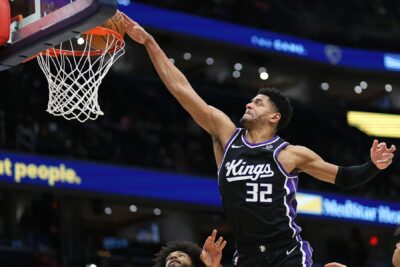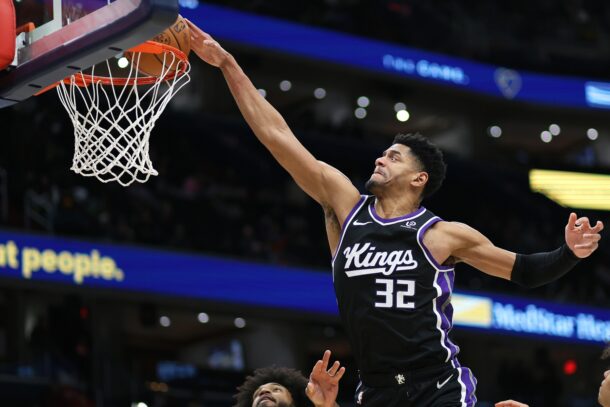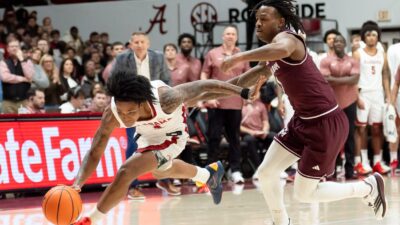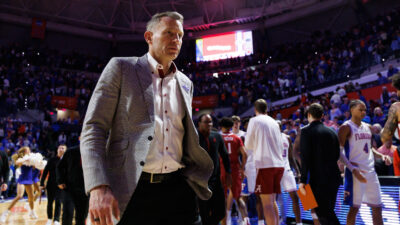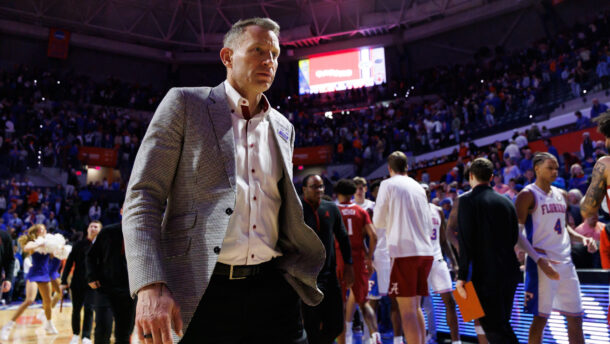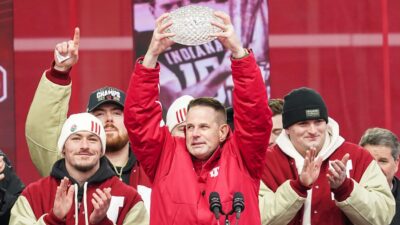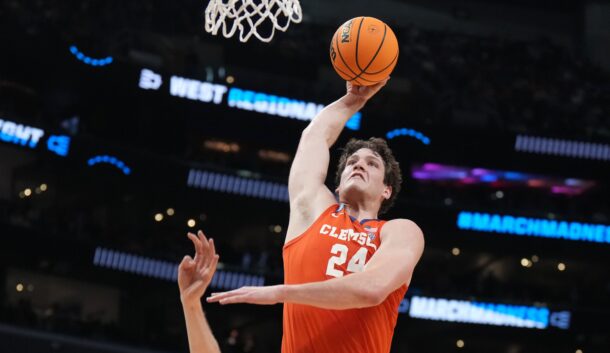
Friedlander: It’s time to let undrafted basketball players retain their remaining college eligibility
The NCAA, mostly by force rather than choice, has instituted a number of long-overdue changes during the past few years to protect the interests of its “student-athletes.”
The relaxation of transfer rules and the ability to monetize their own name, image and likeness are by far the most significant.
But there’s still more that can be done, a fact underscored by the events of this week’s NBA Draft.
Fifty-eight players were selected during the 2-round lottery of basketball talent, held over the past 2 days in Brooklyn. Many of them were underclassmen with remaining college eligibility.
Among the lucky ones were 8 players with ACC ties.
Pitt’s Carlton “Bub” Carrington, Duke’s Jared McCain, Miami’s Kyshawn George and Virginia’s Ryan Dunn were taken in the 1st round Wednesday. Duke’s Kyle Filipowski, North Carolina’s Harrison Ingram, Boston College’s Quinten Post and Sweden’s Bobi Klintman, who spent a year at Wake Forest before leaving to play in Australia, all went in Thursday’s 2nd round.
Not everyone fared as well.
Instead of celebrating, some of college basketball’s most recognizable names learned the painful lesson that unless your last name happens to be James and your father is the NBA’s most influential player, nothing in the draft is guaranteed.
The list of “early entries” who went unselected includes ACC stars PJ Hall of Clemson, Virginia’s Reece Beekman and Syracuse’s Judah Mintz.
None of the 3 was considered a top prospect. Their best hope was finding someone to take a chance on them late in the 2nd round.
They could easily have followed the example of North Carolina star Armando Bacot, withdrawn their names from the draft prior to the deadline, returned to school for at least 1 more season and maximized their earning potential through NIL deals.
Bacot went that route and made at least as much money in endorsements and other opportunities than he would have had he entered the draft and gone unselected. The added bonus is that he cemented his legacy in Chapel Hill by setting several school records. He might even have earned a spot for his jersey in the Smith Center rafters.
Fellow Tar Heel RJ Davis, the reigning ACC Player of the Year, and Hall’s Tiger teammate Chase Hunter are among the growing number of players who have gone that route.
For whatever reason – bad advice, the overwhelming urge to chase a childhood dream or simply because they were no longer interested in perpetuating the charade of attending class – Hall, Beekman and Mintz chose not to.
They gambled. And they lost.
Because they did, their options are now limited to the long shot of pursuing a spot on an NBA roster as an undrafted free agent, earning a 2-way G-League contract or heading overseas to play. None of which is especially attractive. Or financially lucrative.
Hall has already signed with the Denver Nuggets. Beekman with the Golden State Warriors. Mintz has yet to announce his plans.
Had this been baseball, all 3 players could also have returned to their college teams. Or entered the transfer portal in hopes of finding more favorable NIL opportunities.
The rules of that sport are different.
For one thing, players can choose to turn pro directly out of high school rather than attending college. Once they step on campus, however, they’re required to wait 3 years or until they turn 21 before they can become draft-eligible.
Once they reach either threshold, they’re eligible for the draft.
Those who are selected have the leverage to either sign or go through the process again the following year. Those who aren’t selected simply go about their next college season as usual.
Obviously, there are collective bargaining issues involved in all the major sports. And there are logistical obstacles unique to basketball because of the disparity between the end of the college season in April and the NBA playoffs in June.
But other than the roster uncertainty it would create for coaches trying to build their rosters for the next season, which already is a thing because of the portal, there’s no reason undrafted basketball players shouldn’t have the same opportunities as those on the baseball diamond.
It’s only a matter of time before someone decides to take the NCAA to court in hopes of restoring his lost eligibility.
And it’s just as much a certainty that when it happens, the NCAA will come out on the wrong side of the judgment. As it has with every legal challenge it has faced since the O’Bannon decision in 2015.
That’s why instead of fighting what is bound to be another losing battle and facing the possibility of writing yet another multi-billion dollar settlement check, the NCAA should simply do the right thing and continue the trend of protecting the best interests of “student-athletes” like PJ Hall, Reece Beekman and Judah Mintz.
Award-winning columnist Brett Friedlander has covered the ACC and college basketball since the 1980s.


